One of the worst parts about loneliness is how sneakily it can make its way into your life.
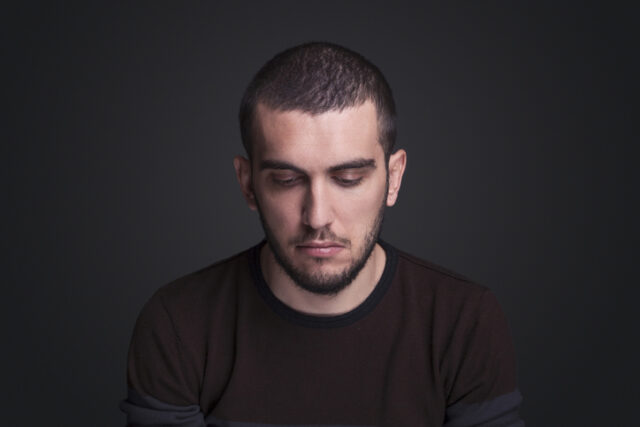
Sometimes, you end up noticing it through small habits, changes in routine, and little moments you brush off as “just a phase.” You might still go to work, scroll through your phone, reply with “I’m fine” when people ask how you are, and yet feel a growing disconnect you can’t quite name. These signs aren’t always overtly alarming, but they do mean that you’re becoming more cut off than you realise. Here are some warning signs to keep an eye out for, even if everything still looks fine on the surface.
1. You’ve stopped reaching out first.
 Source: Unsplash
Source: Unsplash You used to check in with people, send memes, or suggest plans. Now, if someone texts, you’ll respond—eventually. However, the energy to initiate is gone. You tell yourself that everyone’s busy, that they’d reach out if they wanted to talk. However, deep down, you know it’s also you pulling back.
That change doesn’t mean you’re disinterested. It’s usually about emotional fatigue or fear of feeling rejected. It’s easier to stay quiet than risk being reminded that you feel a little invisible.
2. You start cancelling plans more often, even ones you were looking forward to.

At first, it’s justified. You’re tired. You’ve had a long day. You’ll reschedule, you tell yourself. However, after a while, social plans start to feel like obligations instead of lifelines. The thought of talking, engaging, or being “on” feels draining. And yet, every time you cancel, a part of you misses the connection you’re avoiding. You want to be around people—you just don’t know how to re-enter the flow anymore.
3. You talk to yourself more than other people some days.
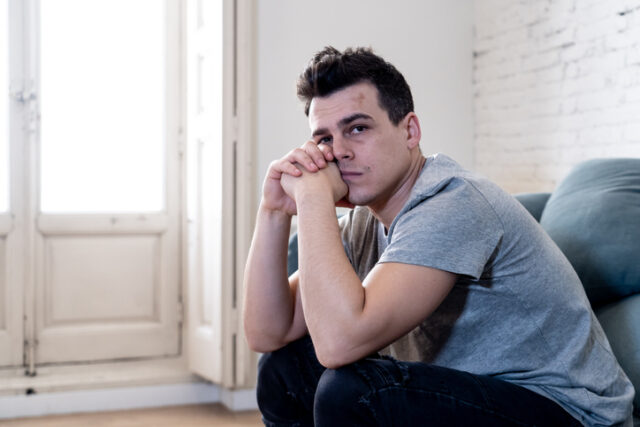
This isn’t always a bad thing—self-talk can be healthy. That being said, when the balance tips, and you’re spending entire days with no real interaction, your inner world starts to feel like the only world. There’s comfort in that solitude, but also a quiet ache. You start to forget what it feels like to share a moment, a laugh, or even a silence with someone else.
4. Your sleep schedule is completely off, and you don’t care.

You’re up late, maybe watching random videos or scrolling endlessly, then sleeping during the day or struggling to get out of bed. Your body clock has changed, and it feels like you’re floating outside the rhythm of the world. Loneliness often disrupts structure. Without social anchors or reasons to stick to a routine, you drift, and the more disconnected your days feel, the harder it is to feel grounded.
5. You feel weirdly emotional at the smallest things.

A random ad makes you tear up. A conversation in a show hits too close to home. Someone being nice, even for a second, gets you unexpectedly choked up. You’re not sure why it’s happening, but you can’t deny it’s there. That emotional sensitivity often signals unprocessed loneliness. It leaks through in moments you didn’t expect—because connection is a need, not a luxury. When it’s missing, your emotions notice first.
6. You’re online more, but it doesn’t feel satisfying.
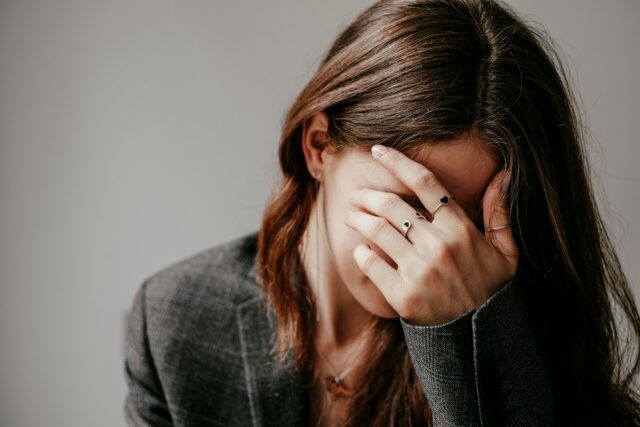
You’re scrolling, refreshing, checking—but it all feels hollow. You’re around people virtually, yet it still feels like no one really sees you. You might even be interacting, but it doesn’t land the same. Digital presence can be a useful lifeline, but when it becomes your main (or only) form of connection, it can actually intensify loneliness. It gives the illusion of closeness without the emotional depth that sustains you.
7. You downplay how lonely you feel, even to yourself.

You tell yourself it’s not that bad. You’re just busy. You like your own company. Everyone goes through quiet patches. However, there’s a part of you that knows the truth: this quiet is getting heavy. Loneliness often hides behind rationalisations. It’s easier to pretend you’re just introverted than to admit you feel isolated, but naming it is often the first step toward changing it.
8. You’ve stopped sharing updates or moments with people.

Maybe you used to send funny photos or updates from your day. Now, when something happens, you just keep it to yourself. There’s no one you feel like telling, or you assume no one would really care. That instinct to share is one of the first things that fades when loneliness creeps in. Of course, the less you share, the more disconnected you feel. It becomes a draining loop you don’t even realise you’re in.
9. You start to feel awkward in conversations you used to handle easily.

You overthink what to say. Small talk feels like a challenge. You’re more self-conscious than usual, and social interactions drain you faster than before. Even texting back feels like a task. You’re not becoming “bad at people”—it’s just what happens when you’ve been on your own for too long. Connection is like a muscle. If it hasn’t been used in a while, it takes time to warm up again.
10. You stop taking care of your space.

Dishes pile up. Laundry sits clean but unfolded. You tell yourself it’s fine—no one’s coming over anyway. However, your environment quietly starts to reflect your internal world: a bit unkempt, overlooked, and low on energy. Neglecting your space isn’t always about laziness—it’s often a sign you don’t feel fully connected to your life right now. When no one’s around to witness it, it feels easier to let the little things slide.
11. You catch yourself fantasising about starting over somewhere new.

Daydreaming about disappearing, moving cities, or rebuilding your life from scratch might be your brain’s way of saying, “I want to feel connected again.” It’s not always about geography—it’s about emotional renewal. That urge to escape is often rooted in feeling cut off or unseen where you are. You crave a reset, but what you’re really craving is closeness, purpose, and a stronger sense of belonging.
12. You’ve stopped doing things just for fun.

Hobbies feel flat. Music doesn’t hit the same. You’re not excited about anything in particular—you’re mostly just passing time. Even things you used to love feel like effort now. When joy fades into numbness, it’s a sign that something deeper is off. Loneliness often dims the parts of life that once gave you light—not because you’ve changed, but because isolation drains colour from even the best parts.
13. You don’t feel like “yourself,” but you can’t describe why.
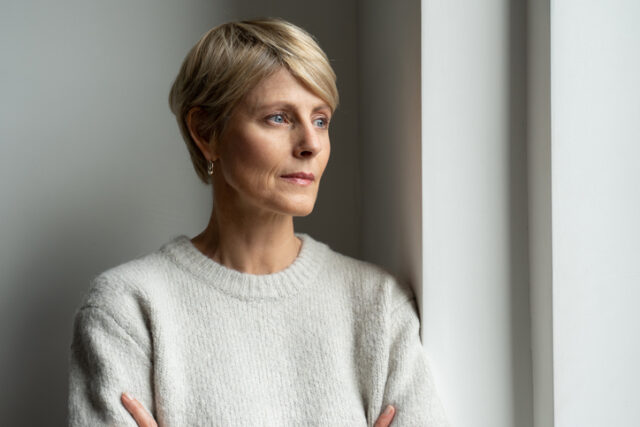
You can’t quite name what’s missing, but you know you’ve changed. You feel a little disconnected from your own personality—like the version of you who used to laugh more or care more is just slightly out of reach. That subtle identity change is often a byproduct of emotional disconnection. When we’re not reflected back by the people around us, we lose touch with our own brightness, and it can happen without realising.
14. You’re craving connection but avoiding it at the same time.

You want people. You want closeness. However, the idea of opening up, socialising, or even answering a call feels like too much. So you stay quiet, and you wait—and the longer you wait, the harder it gets. That push-pull dynamic is a core sign of loneliness. It’s not about disliking people; it’s about being stuck between longing for them and fearing the energy it takes to re-engage.
15. You feel invisible, even in a room full of people.
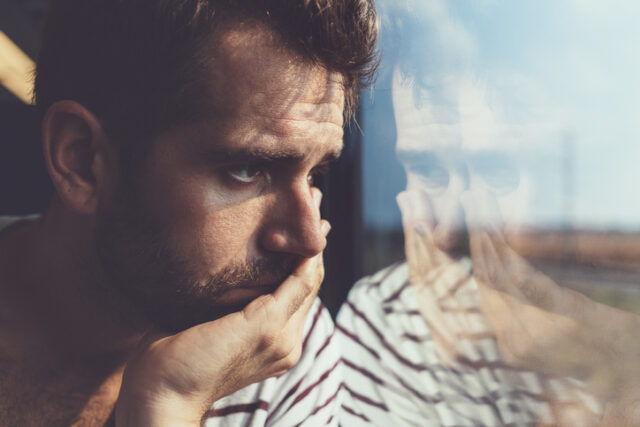
You can be surrounded by noise, activity, even familiar faces, and still feel completely alone. That ache of invisibility isn’t about being physically isolated. It’s about emotional disconnection. You’re present, but not quite there. When that feeling sticks around, it’s a sign that you need something deeper than surface interaction. You need real, meaningful connection, and it’s okay to name that need. It doesn’t make you needy. It makes you human.




